High-Intensity Focused Ultrasound (HIFU) in Tunisia
Search and Compare the Best Clinics and Doctors at the Lowest Prices for High-Intensity Focused Ultrasound (HIFU) in Tunisia
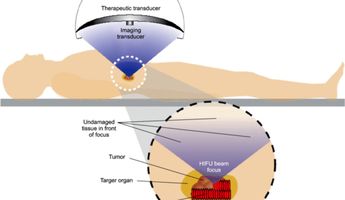
Find the best clinics for High-Intensity Focused Ultrasound (HIFU) in Tunisia
No pricing info available
Indonesia offers the best prices Worldwide
Price: $ 56
From 37 verified reviews
Saoussen Saidani, 13 June 2020
My 12 year old daughter Lina has had surgery Pancreas tumorHeavy Operation which went very wellI thank all the staff of the Pasteur clinic for their hospitality and their hygiene ...I thank the doctors who attended the operation and in particular the surgeonAYADI Sofiene who accompanied us from the start for his professionalism as well as DR Walid Miraoui. The discovery of this tumor is done in a very short time a week to manage allThe support of Surgeon Ayadi Sofiene was really perfect as a parent we were reassured and above all in confidence.And especially I thank them for the moral support of My Daughter Lina who kept the smile until the end and who It is found in Total confidenceThank you so much for saving our childMr er Mrs Saidani
- Home
- Tunisia
Compare Before & After Photos of _procedure_photos.phpHigh-Intensity Focused Ultrasound (HIFU)
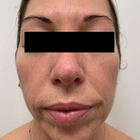
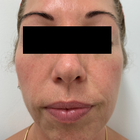
Front view
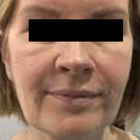
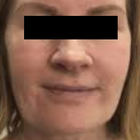
Front view
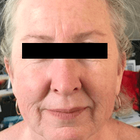
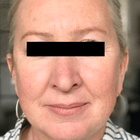
Front view
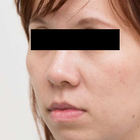
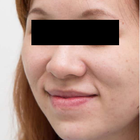
Front view
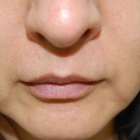
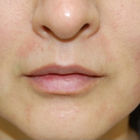
Front view
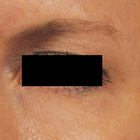
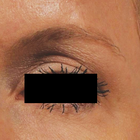
Front view
WHY US?
At Medijump, we're making medical easy. You can search, compare, discuss, and book your medical all in one place. We open the door to the best medical providers worldwide, saving you time and energy along the way, and it's all for FREE, no hidden fees, and no price markups guaranteed. So what are you waiting for?

Free

Best Price

Widest Selection

Risk-Free
What you need to know about High-Intensity Focused Ultrasound (HIFU) in Tunisia
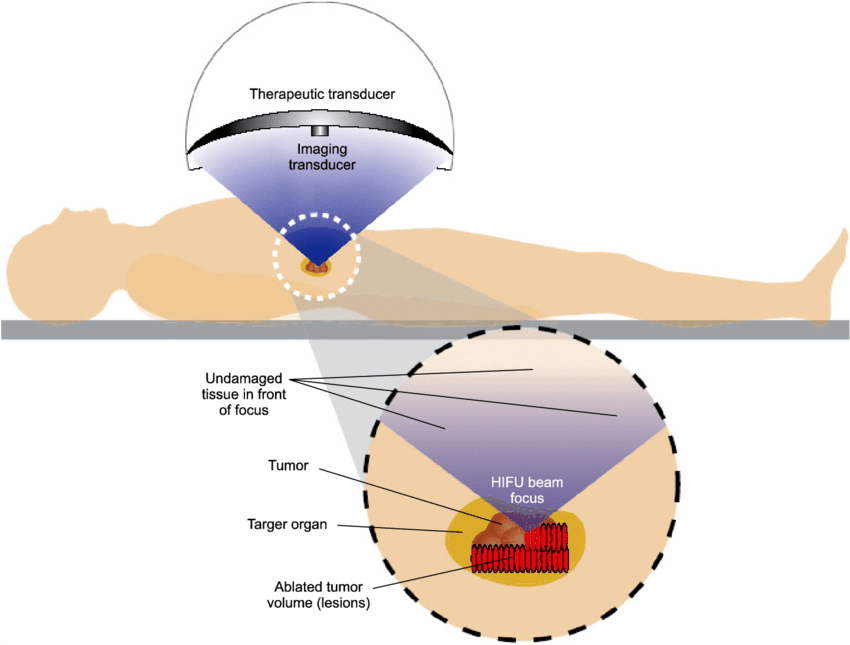
High intensity focussed ultrasound technique (HIFU) also known as focussed ultrasound surgery (FUS), uses non-ionizing ultrasound waves to heat up your body tissues. Temperature can be increased up to 70 to 90°C. These sound waves do not pass through air and bone. It is used for multi-purposes. It works to increase your blood, and lymph flow stimulates cell division and destroys tumor cells. It can also be used to treat a number of disorders including various types of cancer and uterine fibroids. Its use in the treatment of prostate cancer is gaining fame. It can also be used for cosmetic reasons, to reduce wrinkles, aging lines and to lift your loose skin. It is found to be most effective on jawline and cheeks. It should always be performed by the experts because the sonication of the wrong tissue can be dangerous. Also, there might be incomplete destruction of the tumor. Some areas of your body can not be sonicated as they are sensitive to sound waves, this should also be kept in mind while performing HIFU. It can only be used to treat localized cancer and tumors. Cancer which has spread cannot be cured through HIFU.
As HIFU is involved in the treatment of a number of diseases, before going through it, you may suffer from those diseases. These disorders include ovarian fibroids, different types of cancers, breast tumors, Parkinsonism, and a number of other neurological disabilities. You might have loose skin of face, neck, and chest. Vaginal laxity is also a problem. After HIFU, your tumors are destroyed, cancer cells are killed and diseases are cured. Your loose skin looks tightened and strengthened. Wrinkles and aging lines are gone. Vaginal and skin laxity are removed. You look younger than your actual age.
What does a High-Intensity Focused Ultrasound (HIFU) Procedure Involve?
The procedure begins with cleaning the area to be sonicated with alcohol swabs so that there are no germs and bacteria. In the next step, a gel is applied to your skin. Magnetic resonance imaging (MRI) or ultrasound is used to focus the exact tissue, organ or tumor that needs to be treated. The individual is sedated to avoid discomfort and pain during the procedure. After this, the procedure differs according to the purpose of HIFU. In general, an acoustic lens is used to focus sound waves on the targeted organ. The transducer device is used to emit sound waves. The sound waves propagate through the various layers of skin to reach the tumor to be destructed. When sound waves reach the tumor, heat is produced there increasing the temperature up to 90°C in 20 seconds only. This heat starts destroying the cancer cells there.
How Long Should I Stay in Tunisia for a High-Intensity Focused Ultrasound (HIFU) Procedure?
It is a 1 to 4 hours procedure. It depends upon the purpose for which HIFU is being performed. Generally, it is an outpatient procedure. You can be discharged from the hospital after the effects of the sedatives subside. You should plan to stay in Tunisia for at least 14 days after your Procedure, this will allow for the initial recovery and follow-up check-ups, etc.
What's the Recovery Time for High-Intensity Focused Ultrasound (HIFU) Procedures in Tunisia?
The recovery time differs and depends upon the purpose for which HIFU is being carried out. You may suffer from pain and discomfort for 3 to 4 days after the procedure. The soreness and swelling will subside in 2 to 3 weeks. It has less recovery time and has less invasive techniques approved by the FDA. The Non-ionizing radiations used in this technique are the least damaging.
What sort of Aftercare is Required for High-Intensity Focused Ultrasound (HIFU) Procedures in Tunisia?
Aftercare differs in accordance with the purpose for which HIFU is done. However, the following points should be kept in mind to look after yourself at home after being discharged:
- Visit your doctor on a regular basis.
- Do not drive home if you are still under the influence of sedatives.
- Eat healthily. Follow a diet plan made by an expert. It can help you recover faster.
- Take your medicines as and when prescribed by the doctor.
- Take a rest and give yourself time to recover.
- In the case of HIFU for cosmetic reasons, avoid contact with sunlight and wear sunscreen while going out.
- Do not rub or massage your skin.
- Look for something wrong. If you find any sign, visit your doctor immediately.
- In case of any discomfort, contact your physician. Do not go for self-medication.
What's the Success Rate of High-Intensity Focused Ultrasound (HIFU) Procedures in Tunisia?
HIFU has been found to be very successful in the treatment of most of the disorders. However, the success rate differs for each purpose. According to a study, the overall success rate for prostate cancer treatment was reported to be 84%. Cancer patients were divided into 3 groups. The high-risk group showed a low success rate. The intermediate group showed a higher success rate reaching 83.4% and the low-risk group showed the highest success rate of 94.2%. It is also found to be very effective and successful in treating skin laxity and uterine fibroids.
Are there Alternatives to High-Intensity Focused Ultrasound (HIFU) Procedures in Tunisia?
In actuality, HIFU itself is a non-surgical alternative to most of the surgeries. However, the following are some useful alternatives to HIFU:
- Dermal fillers: it is an alternative of HIFU for a facelift. Injections containing Botox, Restylane, etc. are given into your skin to make it look lifted and plump. Your skin looks wrinkle-free and you look younger than your age.
- Uterine artery embolization: this is a treatment for uterine fibroids. Arteries supplying the uterus are occluded by injecting an embolic agent into it. This cuts off blood supply to the fibroids causing them to shrink and ultimately die.
- Radical prostatectomy: also known as an open prostatectomy, entire prostate and seminal vesicle along with some lymph nodes in the pelvic area is surgically removed. Nerve damage is avoided to ensure erection and active sexual life afterward.
- Bilateral orchiectomy: in this surgery, both the testicles are surgically removed. This helps in treating prostate cancer.
- Brachytherapy: in this therapy, radioactive substances are directly inserted into the prostate gland. These are called seeds which give off radiations around the area where they were placed.
Whilst the information presented here has been accurately sourced and verified by a medical professional for its accuracy, it is still advised to consult with your doctor before pursuing a medical treatment at one of the listed medical providers
No Time?
Tell us what you're looking for and we'll reachout to the top clinics all at once
Enquire Now

Popular Procedures in Tunisia
Prices Start From $979

Prices Start From $714

Prices Start From $16

Prices Start From $28

Prices Start From $53

Recommended Medical Centers in Tunisia for High-Intensity Focused Ultrasound (HIFU)

- Interpreter services
- Translation service
- Religious facilities
- Medical records transfer
- Medical travel insurance
- Health insurance coordination
- TV in the room
- Safe in the room
- Phone in the room
- Private rooms for patients available

- Interpreter services
- Translation service
- Religious facilities
- Medical records transfer
- Medical travel insurance
- Health insurance coordination
- TV in the room
- Safe in the room
- Phone in the room
- Private rooms for patients available

- Interpreter services
- Translation service
- Religious facilities
- Medical records transfer
- Medical travel insurance
- Health insurance coordination
- TV in the room
- Safe in the room
- Phone in the room
- Private rooms for patients available

- Interpreter services
- Translation service
- Religious facilities
- Medical records transfer
- Medical travel insurance
- Health insurance coordination
- TV in the room
- Safe in the room
- Phone in the room
- Private rooms for patients available

- Interpreter services
- Translation service
- Religious facilities
- Medical records transfer
- Medical travel insurance
- Health insurance coordination
- TV in the room
- Safe in the room
- Phone in the room
- Private rooms for patients available

- Interpreter services
- Translation service
- Religious facilities
- Medical records transfer
- Medical travel insurance
- Health insurance coordination
- TV in the room
- Safe in the room
- Phone in the room
- Private rooms for patients available
High-Intensity Focused Ultrasound (HIFU) in and around Tunisia
About Tunisia
Tunisia is one of the few countries which can cater to everyone and it manages to combine climate, golden beaches, history, and shopping for an “all-around” experience. It has a high standard of healthcare and an excellent reputation for cosmetic surgery. Cosmetic and plastic surgeons are regulated by the Tunisian Ministry of Health and the private clinics have state-of-the-art equipment and English-speaking staff. Tunisia welcomes an ever-increasing number of medical tourists each year, many of whom travel for High-Intensity Focused Ultrasound (HIFU) procedures. Medical Tourists travel from all across the globe, particularly from Europe and neighboring African countries with an inferior healthcare system. Popular medical tourism destinations outside of the capital, Tunis, include Sousse and Mahdia
Popular Parts of Tunisia
- Tunis, the country’s capital, is overflowing with a history that dates from the 4th Century BC. The city is divided into two parts, the old city known as the medina and the new city (or Ville nouvelle in French). Many tourists visit Tunis to see the Archaeological Site of Carthage which is also a UNESCO World Heritage Site. The beautiful Islamic architecture in medina also attracts many tourists to the city.
- Tozeur is known as a home to an enchanting desert oasis, which was a place to rest and refuel for caravans crossing the Sahara. Another main attraction in the city is the medina, where tourists can find lines of beautiful brick-patterned traditional dessert houses. Chott el Djerid, Sahara’s largest salt pan, is a popular day-trip destination.
- Sousse is located on the coast of the Mediterranean Sea. It offers good beaches with a clear blue sea. The city has been fought over by the Romans, Arabs, and Europeans, giving it a colorful history and culture. Sousse Archeological Museum is one of the most visited sites in the country; it has the second largest collection of mosaics in the world.
- Hammamet is the country’s original tourism resort. The city has beautiful gardens filled with oranges, lemons, and other citrus plants. It also has wonderful sandy beaches with crystal clear water. Just like any other city in Tunisia, this city is also brimming with interesting histories. Sites such as The Gafsa Museum and Bardo Museum will give insights about the Islamic faith and culture.
- Douz, also known as “the gateway to the Sahara.” Tourists who want to experience the Sahara Desert come to this city. Take a camel trip or a 4-wheel-drive into the Sahara or see the Museum of the Sahara that has an interesting collection portraying traditional Saharan life.
Weather and Climate in Tunisia
The North of Tunisia has a subtropical Mediterranean climate with mild rainy winters and hot summers. The South and inland areas have a tropical desert climate.
The weather is relatively comfortable throughout the year. Summer starts in June and lasts until August. The average temperature is between 28 °C to 32 °C with July and August being the hottest months. The heat is not as bad on the coast because of the seaside breeze. Be aware that July to September is the jellyfish season.
The heat decreases in autumn and the weather is somewhat more comfortable. There are occasional rain showers in September. The temperature in October can be like summer during day time, but cold at night. October has more rain than September. The season lasts for three months from September to November with an average temperature of around 19 °C to 29 °C.
The weather in winter can be uncertain. The average temperature is between 16 °C and 18 °C, but it can drop to 7 °C at night and below 0 °C in highlands and deserts and a clear sky is rare during this season.
Spring comes in March and the temperature can rise to 20 °C. Mornings and nights are cold; there is still a high probability of rains and thunderstorms at the end of this season.
Getting Around in Tunisia
Tunisia has several international airports. The main airport is Tunic-Carthage International Airport. It has international connections with major European countries and the Middle East. The airport is the hub for Tunisair, Tunisair Express, and Nouvelair. Other airports that have international flights are Enfidha-Hammamet, Monastir Habib Bourguiba, Djerba-Zarzis, and Tabarka-Aïn Draham.
Taxis and buses are available to get to the city center from Tunis Airport. The SNT bus line departs every 30 minutes from the airport, the ticket costs less than 1 TND. There is also the TUT bus which departs every 15 minutes and is more luxurious and expensive.
Airport taxis are available at the airport taxi stand and are usually metered. Always make sure that the driver turns the meter on before riding the taxis. A journey to the city should cost around 5 TND. An extra cost will be added if you have baggage.
Getting around in Tunisia can be done by several transportation modes. Tunisair Express provides domestic flights between Tunis, Tozeur, Djerba, and Gabes. The Train is also available and the national train company in the country is SNCFT that runs modern and comfortable trains from Tunis to Sousse, Sfax, and Monastir. There are three classes of service that tourists can choose. The fare from Tunis to Sousse is between 6 to 10 TND. The long-distance bus is an economical option to travel between big cities such as Tunis, Hammamet, and Nabeul. The buses usually depart every 30 minutes.
Tourist Visas in Tunisia
Citizens of 97 countries (including Australia, China Singapore, the United States, and Russia) can visit and stay in Tunisia for up to 90 days without a visa. Other nationalities are advised to check with their local Tunisia embassy. Tunisia provides an online visa application for nationalities that needs a visa to enter. The eVisa will simplify the process of obtaining travel authorization to enter the country.
Additional Information
-
Local Currency: the local currency is the Tunisian dinar (TND). 1 USD converts to 2.61 TND.
-
Money & Payments: ATMs can be found in most cities and in all tourist areas. Many ATMs have withdrawal limits of 400 TND. Credit cards (MasterCard and Visa) are accepted in major cities and tourist areas. They can be used for shops, car hire, or top-end accommodation. Always make sure to carry cash if you want to travel outside major cities. Tipping is not necessary but will be appreciated.
-
Local Language: Arabic is the official language of Tunisia. French is very common due to the country’s former status as a French protectorate. English is still very limited except in the tourist areas and expensive hotels.
-
Local Culture and Religion: Islam is the major religion with 98% of the population identified as Muslim. There is a small group of Christian and Jews. Since most of the population is Muslim, always remember that the dress code is important in Tunisia.
-
Public Holidays: Tunisia celebrates major Islam holidays. The country hosts several annual festivals throughout the year such as The International Festival of the Sahara, Yasmine Hammamet Festival, and the International Festival of Carthage.
Popular Searches
- Plastic Surgery in Thailand
- Dental Implants in Thailand
- Hair Transplant in Thailand
- Breast Augmentation Thailand
- Gastric Sleeve in Thailand
- Gender Reassignment Surgery in Thailand
- Laser Hair Removal in Bangkok
- Botox in Bangkok
- Dermatology in Bangkok
- Breast Augmentation in Bangkok
- Coolsculpting in Bangkok
- Veneers in Turkey
- Hair Transplant in Turkey
- Rhinoplasty in Turkey
- Stem Cell Therapy in Mexico
- Rhinoplasty in Mexico
- Liposuction in Mexico
- Coolsculpting in Tijuana
- Rhinoplasty in Korea
- Scar Removal in Korea
- Gastric Sleeve in Turkey
- Bone Marrow Transplant in India
- Invisalign in Malaysia
- Plastic Surgery in the Dominican Republic
- Tummy Tuck in the Dominican Republic
- Plastic and Cosmetic Surgery in Poland
- Rhinoplasty in Poland
- Hair Implant in Poland
- Dental Implants in Poland
- IVF in Turkey
